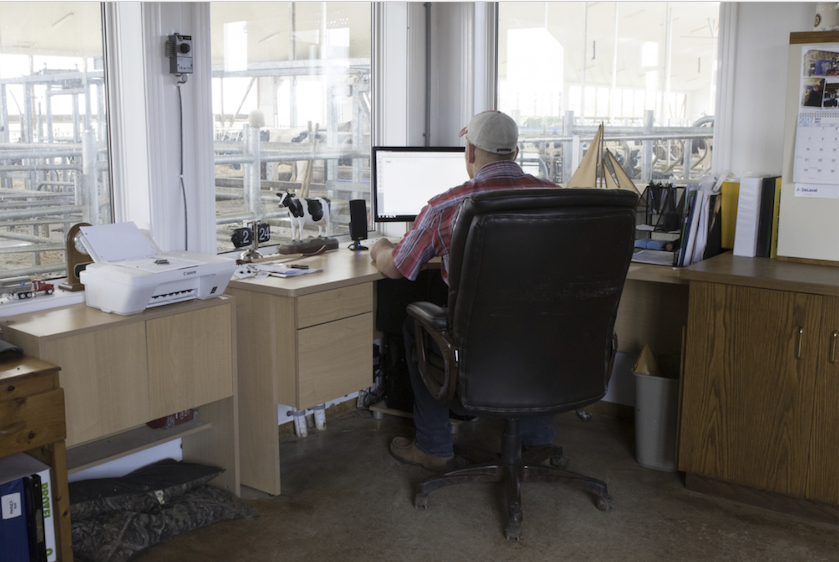Retaining employees is critical to the long-term health and success of your dairy operation. Therefore, failing to create the right environment to retain employees will affect the bottom line of your business and create organizational issues, such as worker insecurity, excess duties that workers must absorb and time invested in recruiting, hiring and training new employees.
One of the proactive approaches we must take to increase retention and reduce turnover levels is to seriously investigate how internal employee training is conducted, identifying the barriers for workers accessing education to satisfy their drive to comprehend. We all know that employee education is proven to boost engagement, motivation and overall productivity. Still, the key question we need to ask ourselves is: “Are we doing a good enough job of providing these resources to our employees?”
Many dairies successfully use other workers to train new hires, although many of these internal trainers have themselves not received proper technical and communication skills training. In this era of technical resources, there is a vast pool of training information available. However, in many cases, nothing beats teaching face-to-face. There are many skilled dairy trainers in this country who are prepared and educated to perform good technical and personalized training for your workers. The question is: Who are the gatekeepers of knowledge?
The first gatekeeper: The producer/provider
When it comes to learning, the experience often outweighs the content itself. For example, listening to an instructor with limited interaction will not be the right experience for workers if they are hands-on learners.
The same applies to the information itself: Highly complex topics, such as cow transition management, are better communicated through dynamic visuals than text-based materials. When many dairy farmers are approached and asked about the need for training and external resources, the answer is often, “My herdsperson is bilingual – we don’t need help.” This is one of the main barriers we encounter which limits workers’ access to education and engagement that could help to decrease turnover. Instead, producers should be open to bringing in outside educators and encouraging their workers to improve their skill set, benefiting their team and business.
The second gatekeeper: The consultant/seeker
Getting over barriers to learning requires a solid connection to what is being taught through relevance to the learner. This is where a professional dairy trainer can help. To find an experienced trainer, ask your veterinarian, nutritionist and/or extension agent about existing resources, especially bilingual trainers with experience in dairy farming who can directly relate to your workforce.
Many of your consultants have access to these resources through their network of connections, but sometimes they are not efficiently used or properly identified. Your consultant should be assertively helping you find ways to increase employee retention and decrease turnover by looking into the areas of the dairy that could benefit from external training. For example, your nutritionist should not only focus on the feeding center but also other areas that will affect nutrition, such as parlor management.
The third gatekeeper: The worker/receiver
The benefits of educating workers are many. Not only will they personally benefit from receiving education when it comes to career skill development, but society and community will gain from their education, too. Societies with higher rates of degree completion and levels of education tend to be healthier, have higher rates of economic stability, lower crime and greater levels of equality. Lack of access to education is considered the root of poverty. In fact, not getting an education can lead to a cycle of poverty. However, gaining access to education can mean getting out of that cycle.
But the worker must have the drive to comprehend and ask for education and information. They need to believe that getting an internal education within the dairy is also an opportunity to grow as individuals and be exposed to diverse ideas that can expand their minds. Education does not just mean having your workers watch a video about cow handling and checking the box, but rather providing them with the space and opportunities to meet individuals with the skills to train them.
As agriculture, in general, is facing labor issues, we need to think very seriously about “education for retention,” making it part of our industry by breaking the barriers that block access to this vital resource. A dairy that promotes training using external resources usually has a higher sense of unity and trust.
Even if your dairy has good worker stability and you are achieving most of your goals, you need to consider hiring an external trainer. These individuals can offer different tools and ways to understand problems that lay ahead of us and help us to resolve them. More importantly, education provides us with the considerable mental agility to make the right decisions and spring into action when needed. Do not close the road to education by underestimating your labor force and their desire to learn. Instead, be part of the solution.
-
Jorge Delgado
- On-Farm Dairy Training, Talent Development and Retention Program Specialist
- Alltech
- Email Jorge Delgado







